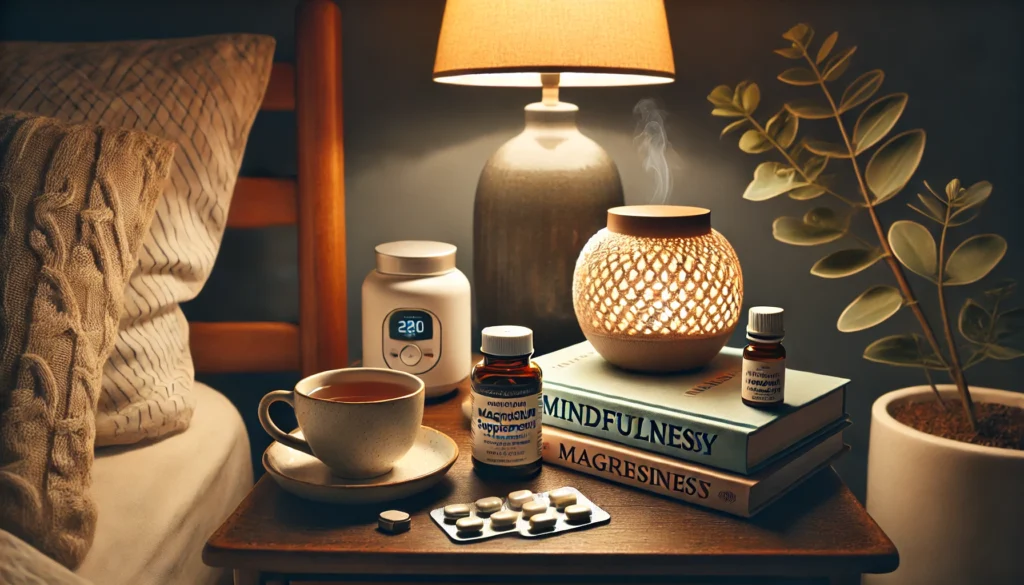Anxiety is not merely a fleeting feeling of worry or fear; it’s a complex mental health condition that can significantly impact one’s quality of life. From historical treatments to modern solutions, our understanding of anxiety has evolved dramatically.
You may also like: Natural Supplements for Effective Anxiety Relief

Historical Perspectives on Anxiety
Historically, anxiety was often misunderstood and misdiagnosed. Ancient civilizations employed various herbs and rituals to combat anxiety, often attributing symptoms to spiritual or supernatural causes. As societies evolved, so did the approaches to treating anxiety. During the Middle Ages, anxiety was often seen through a religious lens, with treatments ranging from prayer to exorcism.
Modern Understanding of Anxiety
In more recent centuries, with the advancement of medical science, anxiety has been recognized as a legitimate mental health condition. The 19th and 20th centuries saw the emergence of psychotherapy and medication as primary treatments. Today, anxiety is understood as a multi-faceted condition with various triggers and manifestations, leading to a more nuanced approach in treatment options.
The Psychological and Physical Impact
Anxiety does not only affect mental health; it can also manifest physically. Symptoms such as rapid heartbeat, muscle tension, and fatigue can accompany feelings of worry and fear. This dual impact makes it crucial to address both the mental and physical aspects of anxiety in treatment.
Criteria for Evaluating Anxiety Relief Products
To ensure a comprehensive review, we’ve based our evaluations on several critical criteria: effectiveness, safety, ease of use, scientific backing, and user reviews. This holistic approach ensures that each product is assessed thoroughly, providing you with well-rounded insights.
Effectiveness and Scientific Backing
Effectiveness is paramount when considering anxiety relief products. This involves examining the scientific evidence supporting each product, including clinical trials and peer-reviewed studies. Products with robust scientific backing are more likely to provide reliable relief. It’s also important to consider how different products interact with various types of anxiety, from generalized anxiety disorder to situational stress.
Safety and Side Effects
Safety should never be compromised when using anxiety relief products. Potential side effects and interactions with other medications must be carefully considered. It’s essential to weigh the benefits of a product against any potential risks, ensuring that the product is not only effective but also safe for long-term use.
User Experience and Accessibility
Ease of use and accessibility are crucial for any product to make a real impact. Products that are difficult to obtain or use may not provide the desired relief, no matter how effective they are. User reviews provide valuable insights into these aspects, highlighting practical considerations such as taste, packaging, and convenience.
Cost and Value
Cost is another critical factor in evaluating anxiety relief products. While some products may be more expensive, they might offer better value due to their effectiveness or the quantity provided. It’s important to consider whether a product offers a reasonable balance between cost and benefits.
Ethical and Environmental Considerations
In today’s world, ethical and environmental considerations are increasingly important. This includes assessing whether a product is sustainably sourced, cruelty-free, or made with environmentally friendly practices. Such factors can influence consumer choice and reflect broader values beyond efficacy alone.

Top 10 Anxiety Relief Products
1. CBD Oil
CBD oil has surged in popularity as a natural remedy for anxiety. Derived from the cannabis plant, it offers a calming effect without the psychoactive properties of THC.
- Pros: Widely available, non-intoxicating, backed by research indicating its efficacy in reducing anxiety. CBD oil is also versatile, available in various forms such as tinctures, capsules, and edibles, making it easy to incorporate into daily routines.
- Cons: Can interact with medications, quality varies between brands. Additionally, the lack of regulation in the CBD market means that consumers must be diligent in selecting high-quality products.
2. Ashwagandha Supplements
Ashwagandha is an ancient medicinal herb known for its stress-relieving properties. It works by reducing cortisol levels, a key stress hormone.
- Pros: Natural, well-tolerated, supports overall well-being. Ashwagandha is also known to enhance energy levels and improve cognitive function, offering broader health benefits.
- Cons: May take time to show effects, potential interaction with medications. Some users may experience mild side effects such as upset stomach or drowsiness.
3. Essential Oils
Aromatherapy, using essential oils like lavender and chamomile, can provide immediate anxiety relief.
- Pros: Fast-acting, pleasant to use, versatile. Essential oils can be used in various ways, including diffusers, topical application, and baths, offering a sensory experience that can enhance relaxation.
- Cons: Not a long-term solution, efficacy varies among individuals. Some people may also experience allergic reactions or skin sensitivity.
4. L-Theanine Supplements
L-Theanine, found in tea leaves, promotes relaxation without sedation. It’s often used in conjunction with caffeine to enhance focus and calmness.
- Pros: Non-sedative, can be taken with other supplements. L-Theanine is also known to improve sleep quality, making it a beneficial option for those with anxiety-related insomnia.
- Cons: Effects can be subtle, not suitable for everyone. Some individuals may not notice significant changes, and high doses can lead to headaches or irritability.
5. Weighted Blankets
Weighted blankets provide deep pressure stimulation, which can help reduce anxiety and improve sleep quality.
- Pros: Non-invasive, easy to use, promotes restful sleep. The comforting pressure can mimic a hug, offering emotional as well as physical relief.
- Cons: Can be expensive, not suitable for all sleep positions. Individuals with certain health conditions, such as respiratory or circulatory issues, should consult a doctor before use.
6. Valerian Root
Valerian root is a herbal remedy known for its calming effects and ability to improve sleep.
- Pros: Natural, widely used, supports sleep. Valerian root is often combined with other herbs like hops or lemon balm for enhanced effects.
- Cons: Strong smell, may cause drowsiness. Long-term use can lead to dependency, and abrupt cessation might cause withdrawal symptoms.
7. Passionflower
Passionflower is another herbal remedy that can reduce anxiety symptoms by increasing levels of gamma-aminobutyric acid (GABA) in the brain.
- Pros: Natural, supports relaxation, few side effects. Passionflower is also used to help alleviate symptoms of insomnia and nervousness.
- Cons: May interact with medications, not recommended for pregnant or breastfeeding women. Its effects can vary greatly depending on the formulation and dosage.
8. Magnesium Supplements
Magnesium plays a crucial role in brain function and mood regulation. Supplementing with magnesium can help alleviate anxiety symptoms.
- Pros: Supports overall health, easy to find, affordable. Magnesium supplements can also support bone health and muscle function.
- Cons: Excessive intake can lead to digestive issues. People with kidney problems should consult a healthcare provider before starting magnesium supplements.
9. Yoga and Meditation Apps
Apps like Headspace and Calm offer guided meditation and yoga sessions tailored to reduce anxiety.
- Pros: Convenient, adaptable, scientifically supported. These apps often provide a community aspect, allowing users to share their experiences and progress.
- Cons: Requires commitment, effectiveness varies. Some users may find it difficult to maintain regular practice without in-person guidance.
10. Adaptogenic Teas
Adaptogenic teas, containing herbs like Rhodiola and Holy Basil, help the body adapt to stressors.
- Pros: Easy to incorporate into daily routine, natural. These teas can also provide additional health benefits, such as boosting immunity and enhancing mental clarity.
- Cons: Effects can be subtle, requires regular consumption. Not all adaptogens are suitable for everyone, and some may experience mild digestive discomfort.
Future Trends in Anxiety Relief
The field of anxiety relief is ever-evolving, with new research and innovations continually emerging. Future trends point towards personalized medicine, where treatments are tailored to an individual’s genetic makeup and lifestyle.
The Role of Technology
Technology is playing an increasing role in managing anxiety, from wearable devices that monitor stress levels to virtual reality therapies that provide immersive relaxation experiences. These technological advancements offer innovative ways to track and manage anxiety in real-time, providing users with immediate feedback and tailored interventions.
Genetic and Biomarker Research
Advances in genetic and biomarker research are paving the way for more personalized anxiety treatments. Understanding an individual’s genetic predisposition to anxiety can lead to more targeted therapies, minimizing trial and error in finding effective solutions.
Integrated and Holistic Approaches
There is a growing trend towards integrating traditional and holistic approaches with modern medicine. This includes combining therapies like acupuncture, mindfulness, and nutrition with conventional treatments to provide comprehensive anxiety management strategies.

Conclusion
Choosing the right anxiety relief product requires careful consideration of various factors, including effectiveness, safety, and personal preferences. The products reviewed in this article offer a range of options, from traditional herbal remedies to cutting-edge technology.
As we continue to explore the complexities of anxiety and its management, staying informed about the latest research and trends will empower you to make the best choices for your mental well-being. Remember, while these products can aid in managing anxiety, it’s crucial to consult with a healthcare professional for personalized advice.
Whether you’re a health and wellness coach, science journalist, or biohacker, the insights provided here aim to support your journey towards understanding and alleviating anxiety. By embracing a multifaceted approach to anxiety relief, you can tailor strategies to your unique needs, enhancing your overall quality of life.
Further Reading:
A Therapist Reveals Her 10 Favorite Stress Relief Products
How to treat anxiety naturally
6 Natural Products to Help Alleviate Anxiety
Important Note: The information contained in this article is for general informational purposes only, and should not be construed as health or medical advice, nor is it intended to diagnose, prevent, treat, or cure any disease or health condition. Before embarking on any diet, fitness regimen, or program of nutritional supplementation, it is advisable to consult your healthcare professional in order to determine its safety and probable efficacy in terms of your individual state of health.
Regarding Nutritional Supplements Or Other Non-Prescription Health Products: If any nutritional supplements or other non-prescription health products are mentioned in the foregoing article, any claims or statements made about them have not been evaluated by the U.S. Food and Drug Administration, and such nutritional supplements or other health products are not intended to diagnose, treat, cure, or prevent any disease.


